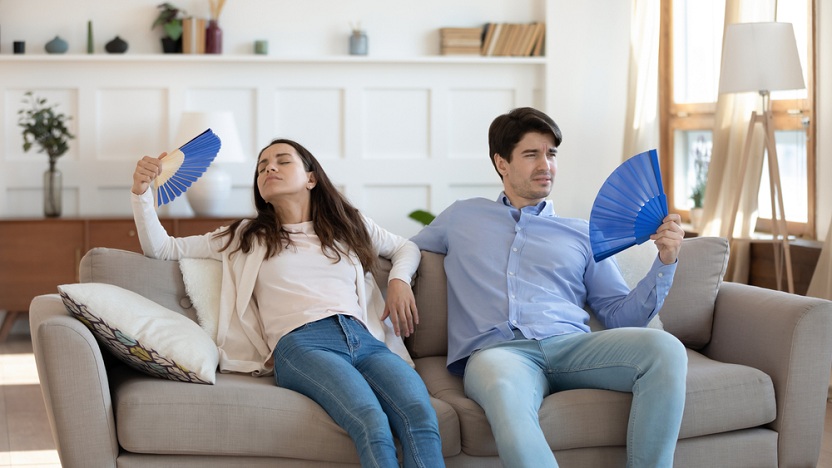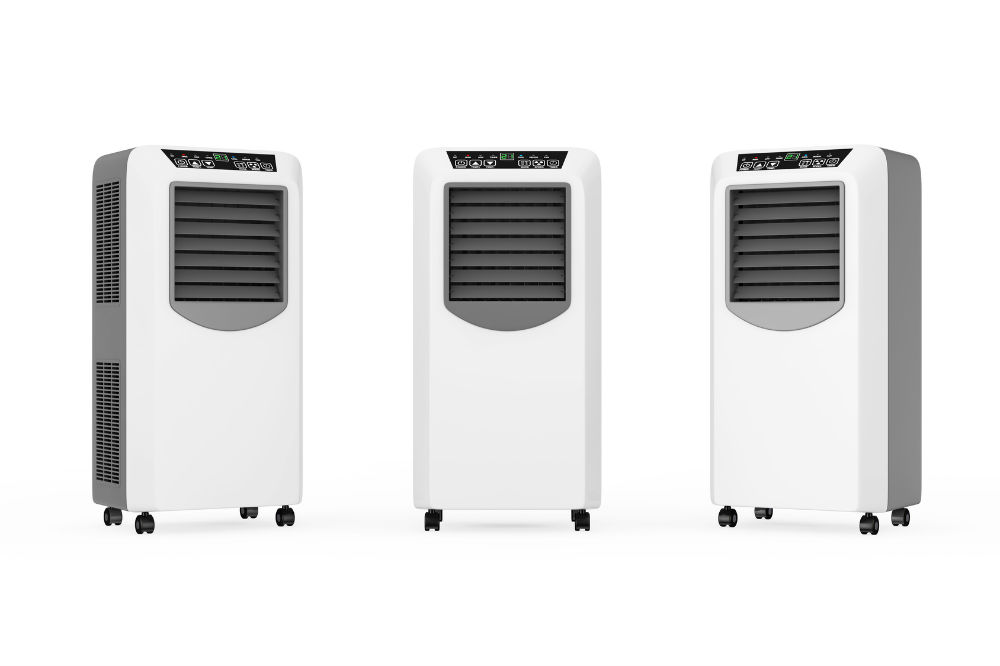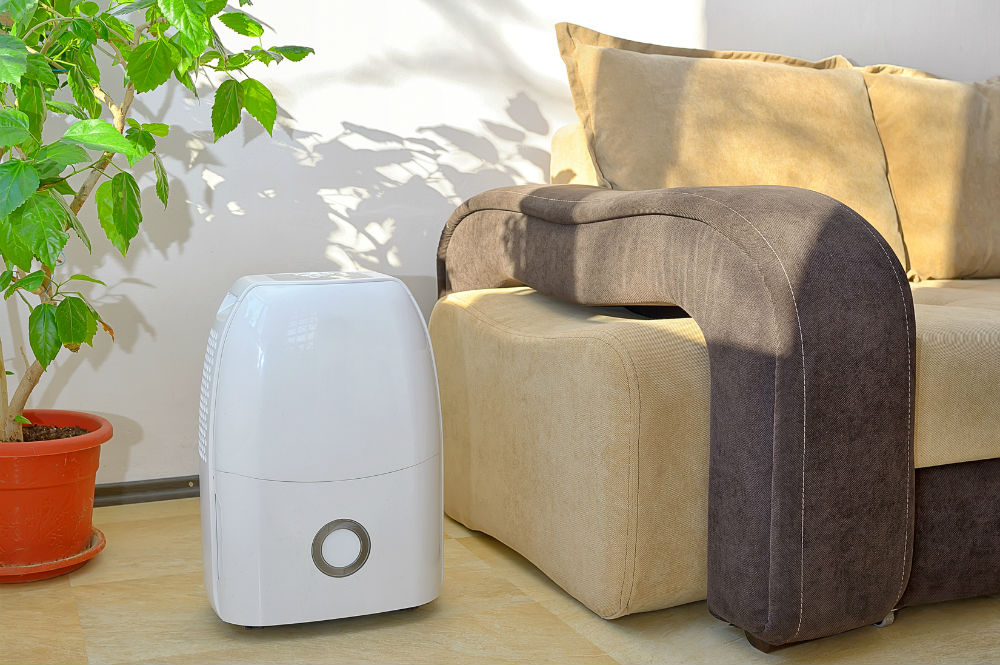If the temperature rises during the summer, an unreliable or malfunctioning portable air conditioner can become a severe problem.
Not only could you feel uncomfortable in a humid and hot environment, but you might have to pay for a higher electricity bill. Here is a comprehensive troubleshooting guide that describes some of the most common problems people often encounter and how to fix them at home.
Portable Air Conditioner Is Not Starting
Have you switched on your portable air conditioner, but it doesn’t start?
This could be due to the lack of voltage.
Check the main power outlet for any issues if everything else is working, but the air conditioner isn’t cooling.
Check the cable to see if there is a problem, and check the circuit breaker to see if it is working correctly. Reset the circuit or use another power outlet to see if the air conditioner starts.
If there’s no issue in any of these components, then there’s something wrong with your air conditioning unit, which may be as simple as a blown internal fuse.
Consult the manual to see if you have access to the fuse box. If not, this task must be given to a pro because the appliance needs to be opened to replace the fuse.
Portable Air Conditioner Has Stopped Functioning
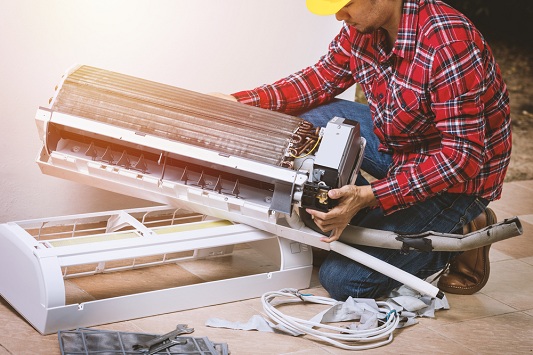
If you use a portable air conditioner, it may stop working if it has been turned off for some time. If it stops again, give it another restart. Notice if it stops again without an active timer.
Some portable air conditioner units shut off when the temperature set by a user has been reached, and the room is just a notch cooler than the surrounding ambient temperature.
If the temperature inside the room rises above the ambient temperature, the air conditioner will start working again.
Lack of Airflow Coming From the Air Conditioner
A lack of airflow can cause a clogged or dirty filter.
To troubleshoot this air conditioner problem, clean the filter so there isn’t any dust or dirt inside it, and then use a brush or a vacuuming tool.
If the filter is washable (see the manufacturer’s manual), rinse it under running water and air dry it before reinstalling.
Frost can cause reduced airflow. First, check for frost on the evaporator or cooling coil. Dirt in the system or frost may be causing the problem. Portable air conditioners often include a defrost feature. Use this to remove frost.
If the compressor is too hot, it could cause a lack of airflow. Look at the window segment of the air conditioner and the hose to see whether adequate ventilation exists.
Refrigerant depletion may affect airflow. If no solution fixes the problem, have a technician check for a refrigerant leak. If the compressor is on the blink, have them replace it.
Portable AC Is Not Cooling Enough
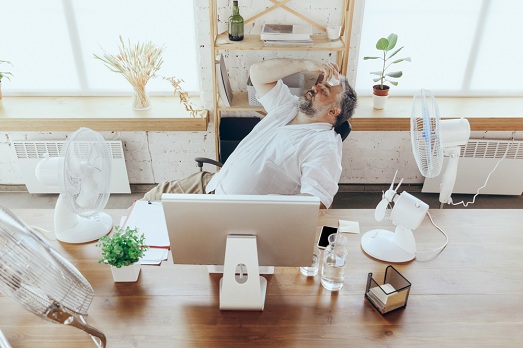
Another common portable air conditioner troubleshooting issue. The solution is generally less bad than it seems.
To find the problem of the portable air conditioner not cooling adequately, look at the filter and check if there is any dirt or debris inside it. If it is, then clean it.
Next, check for any air intakes that might be obstructing airflow.
Check the exhaust hose for any obstructions. A very long exhaust hose could be an issue. If it’s too long, it won’t remove heat properly. Make sure that this hose is the shortest one possible.
Please ensure the door or window is closed and check that the fan runs at its highest. Sometimes openings or vents in windows or doors can let the cool outside air out, making it seem like the portable air conditioners aren’t currently providing enough cooling, even though they are.
If all those things look good, the solution might be one or two other things.
- Improperly sized device
- Ambient temperatures too higher
Cooling units are meant and designed for small to medium-sized rooms. Familiar places include bedrooms, living rooms, basements, lounges, or studies.
Portable air conditioners usually provide extra cooling and are often used in regions where central air conditioning systems don’t cool a room evenly.
Portable air conditioners are usually smaller than window units, so they may not be able to cool a larger space if there are too many occupants in the room or the system has a problem.
If the device is not big enough for the space and the outside air temperature is too hot for the appliance, then the device will struggle to cool the area adequately.
You must ensure the right size appliance for the desired space. Find out how to get started by following these steps.
Determine the ideal sized unit for space.
You need to calculate the square footage to get the right size of an air conditioning system, except if the ceiling height is unusual, in which case you have to calculate the cubic footage or volume.
To calculate the square footage, measure the room’s width and height, then multiply both numbers.
Adjusting for Ambient Temperatures
The portable AC will strive to cool a space quickly or reach lower temperatures when it’s hot outside.
If this is the case, then ambient temperature adjustment must be made.
When using a portable air conditioner, always keep its set temperature no higher than 10 degrees below the outside temperature, and never use it when confused. Insulate your rooms properly.
Look for gaps or leaks. For example, the device may draw in warm air from the other room and restrict its cooling capacity if there is a small hole in a window or door.
If a room gets too much direct sunlight, it can be difficult for the portable air conditioning unit to cool the room efficiently.
The best option is to install double-glazed glass and blinds for doors and windows to prevent the room from becoming too hot.
There's a Musty Smell In Air Conditioner
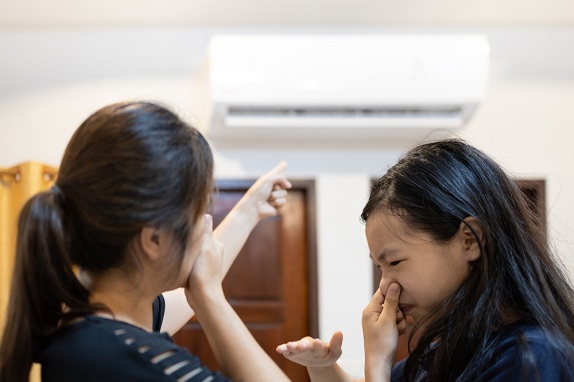
A musty smell is one of the most common problems with portable air conditioners.
This smell usually indicates the growth of mold or mildew.
Mold spores thrive in damp environments, so they will grow and multiply if you have a leaky AC unit.
If you remove water, the odor will go out.
Your Portable Air Conditioner Exhaust Hose Gets Hot
The exhaust hose of a portable air conditioner gets hot because it absorbs heat from the outside air.
This makes the hose warm up, which causes the filter to become dirty.
When the filter becomes too dirty, it reduces airflow and lowers efficiency.
If you don’t clean your air filters often enough, it might lead to overheating. In some cases, the exhaust hose can even melt.
To avoid this problem, follow these steps:
1. Check the filter area for signs of damage, such as cracks or tears.
2. Remove the filter cover and check the inside of the housing.
3. Clean the filter according to manufacturer instructions.
4. Replace the filter cover.
When All Else Fails...
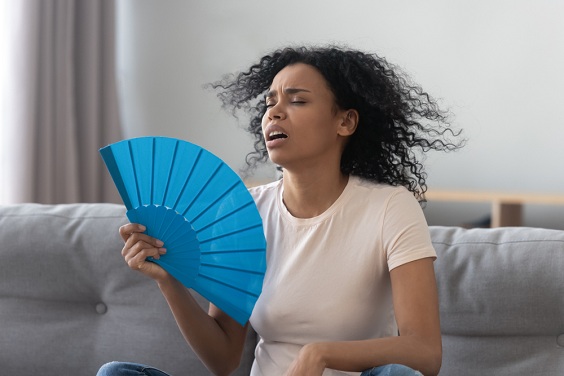
Most of the problems you will face with an AC can be fixed easily and relatively quickly.
However, there will be a point when your unit reaches the end of its life or becomes too expensive to repair.
If this is true, you should probably replace the appliance with a newer one. Check out our free guide on the top portable air conditioner models. It shows you what to consider when buying a portable air conditioner and how to pick the right one for any size area.
We also have another review of affordable portable air conditioners for those with a limited budget.
I’m a degreed ME (mechanical engineer) who is passionate about machines of all kinds. I created MachineWonders.com as a way to connect with others who love machines like me – or need help choosing one for their needs, application, or situation.

